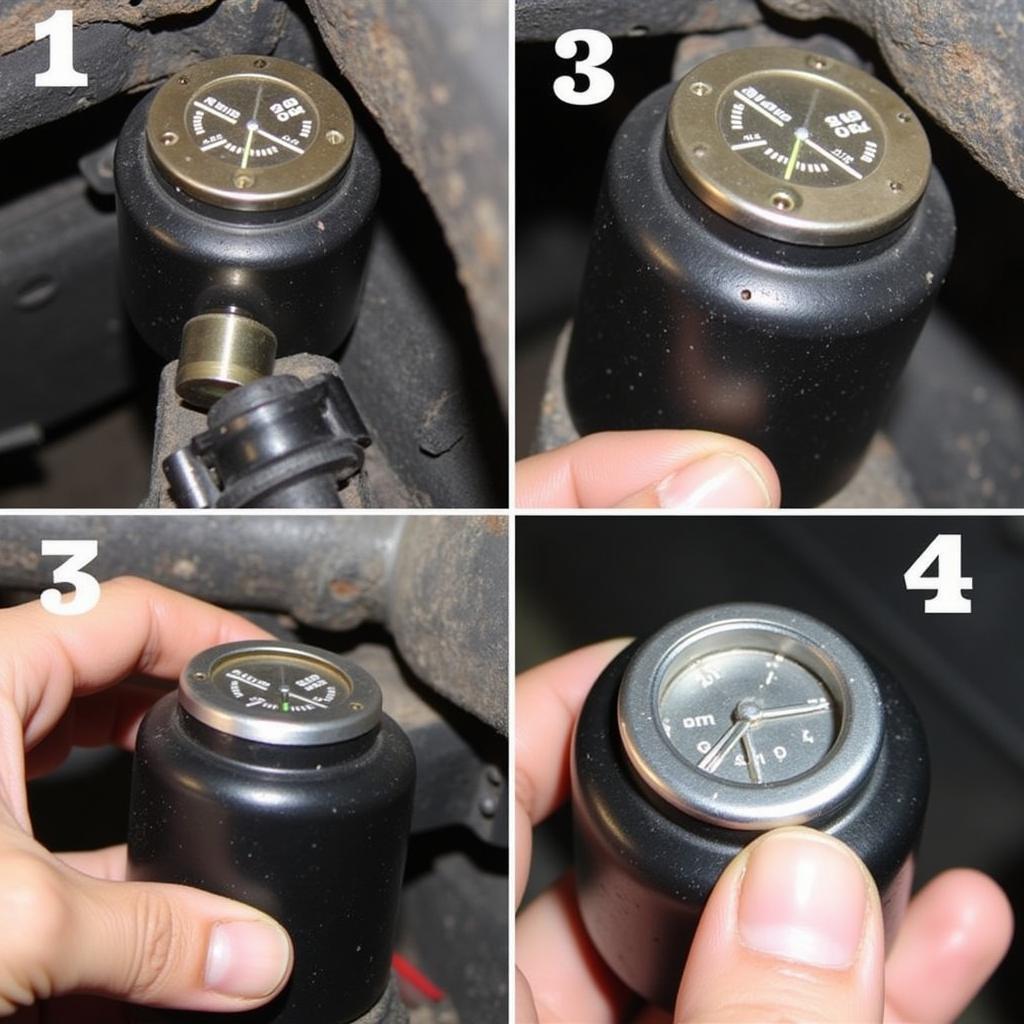The ABS brake warning light on your Audi dashboard is a safety feature, alerting you to a potential problem within your car’s Anti-lock Braking System (ABS) or Electronic Stability Control (ESC). Ignoring this light could compromise your safety on the road, especially in challenging driving conditions. While the sight of any warning light can be unsettling, understanding the common causes and potential solutions can save you stress and unnecessary costs.
Understanding the Audi ABS Brake Warning Light
Your Audi’s ABS system is crucial for maintaining control during hard braking. By preventing the wheels from locking up, ABS allows you to steer safely while braking. The ESC works in conjunction with the ABS, providing stability and traction control. When the ABS brake warning light illuminates, it indicates a potential fault detected in either of these systems.
Common Causes of an Illuminated ABS Brake Warning Light
A variety of factors can trigger the ABS brake warning light in your Audi. Here are some common culprits:
- Worn-Out Brake Pads: One of the most common reasons for the light to appear is worn brake pads. As the pads thin with use, the brake fluid level in the reservoir drops. This change can trigger the warning light, especially if the sensor detects a critically low fluid level.
- Faulty ABS Sensors: The ABS system relies on sensors at each wheel to monitor wheel speed. A malfunctioning sensor can disrupt the system’s ability to detect and prevent wheel lockup, triggering the warning light.
- Damaged ABS Tone Ring: The ABS tone ring, a toothed ring located on each wheel hub, works in conjunction with the sensors. Damage to this ring, often caused by debris or corrosion, can disrupt the signal and activate the warning light.
- Issue with the ABS Module: The ABS module is the brain of the system. A malfunctioning module, although less common, can lead to a range of issues, including an illuminated warning light.
- Low Brake Fluid: Brake fluid is the lifeblood of your braking system. If the fluid level is low due to a leak or worn brake pads, it can trigger the ABS warning light as well.
How to Diagnose the Problem
Diagnosing the exact cause of the ABS brake warning light requires a multi-step approach:
- Check Your Brake Fluid: Begin by inspecting your brake fluid level. If it’s low, it needs to be topped up. However, a sudden drop in brake fluid level often points to a leak, requiring immediate professional attention.
- Visual Inspection: Examine your brake lines, calipers, and other brake components for any signs of leakage or damage.
- Scan for Trouble Codes: A professional-grade OBD-II scanner can retrieve specific trouble codes stored in your Audi’s computer, providing valuable clues about the root cause of the issue.
- Consult a Professional: For accurate diagnosis and repair, it’s recommended to consult with a qualified Audi technician or a trusted mechanic specializing in ABS systems.
Can I Still Drive with the ABS Light On?
While you may still be able to drive your Audi with the ABS warning light on, doing so is not recommended. Driving without a functioning ABS system significantly increases the risk of accidents, particularly in emergency braking situations or on slick roads. It’s crucial to address the issue promptly to ensure your safety and that of other road users.
Fixing the Audi ABS Brake Warning Light
The repair method for your Audi’s ABS brake warning light directly correlates to the underlying cause. Here are a few possible solutions:
- Brake Pad Replacement: If worn brake pads are the culprit, replacing them will likely resolve the issue. How long after brake warning light can you drive? It’s best not to wait.
- Sensor Replacement: In cases of faulty ABS sensors, replacing the malfunctioning sensor is usually the most effective solution.
- ABS Tone Ring Repair: A damaged ABS tone ring might require cleaning or replacement depending on the severity of the damage.
- ABS Module Repair/Replacement: If the ABS module is determined to be faulty, it might require repair or replacement, which can be a more costly fix.
Preventing Future ABS Issues
Proactive maintenance is key to minimizing the risk of future ABS issues:
- Regular Brake Inspections: Schedule routine brake inspections, ideally every 12,000 miles or as recommended by your Audi’s service schedule.
- Timely Brake Pad Replacement: Replace your brake pads before they wear down excessively.
- Quality Brake Fluid: Use high-quality brake fluid and ensure it’s changed according to your Audi’s maintenance schedule.
Remote Diagnostics and Programming Solutions
In today’s tech-driven world, advancements in automotive technology allow for remote diagnostics and programming solutions. Services like those offered by specialized companies can often diagnose the issue remotely and even perform software updates or coding changes, potentially saving you a trip to the mechanic.
Conclusion
The ABS brake warning light in your Audi is a crucial safety feature, not to be ignored. Understanding its implications, common causes, and potential solutions can help you address the issue swiftly and confidently. Prioritizing regular maintenance and timely repairs will not only keep your Audi performing optimally but also ensure your safety on the road. Remember, when it comes to your safety, never hesitate to seek professional assistance.

